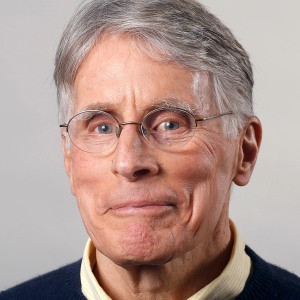Column: Be careful what you wish for
| Published: 03-27-2023 11:38 AM |
Yesterday afternoon I read The Brilliant Inventor Who Made Two of History’s Biggest Mistakes, an article about Thomas Midgley, Jr. that will appear in this weekend’s NYTimes Magazine. Written by Steven Johnson, the article offers a history of tetraethyl lead and chlorofluorocarbons, two chemicals that provided tremendous benefits to consumers, benefits that ultimately had a tremendous adverse effect on humanity.
Tetraethyl lead became an essential additive to gasoline beginning in the late 1920s as the optimal solution to engine knock, a fundamental flaw in the internal combustion engines at that time. Engine knock made valves rattle when a car drove uphill, caused cylinder heads to make a loud knocking noise, the gearbox to vibrate, and the engine to lose its power suddenly and unpredictably.
Following a five-year-long trial and error process, Midgely, a mechanical engineer with no formal training in chemistry, determined that engine knock could be eliminated by adding lead to gasoline and that, in turn, contributed to a threefold expansion of automobile ownership in the decade that followed, and the predominance of petroleum powered automobiles. It also led to the widespread lead poisoning that followed as the invention was rolled out; poisoning that led to thousands of deaths across the globe in the years that followed before it was outlawed in the early 1970s.
After his success at stemming engine knock, Midgely was invited to tackle an engineering challenge in another emerging industry: refrigeration. In the early 1900s, air-conditioning was introduced into businesses and refrigerators were introduced into homes. The widespread use of these inventions was limited, however, by the fact that their cooling was derived from gasses that were “prone to catastrophic failure.” Some resulted in explosions while others caused nausea and lung damage. Applying the same painstaking methodology he used to discover the solution to engine knocking, Thomas Midgely determined that some form of fluorine could be used to replace the more volatile gasses leading to the widespread commercial use of Freon, as it was named by Dupont in 1932. The widespread use of air conditioning led to migrations to warmer climates and the use of electric refrigerators saved lives by keeping food healthful. But scientists ultimately determined that Freon was compromising the ozone, which, if unchecked, would make most of the planet uninhabitable by the middle of this century.
When Thomas Midgely passed away in the mid-1940s, he was hailed as a genius. At that point, there was little to no understanding of the damage his inventions inflicted on the world. Then, during his career as an inventor, the desire to make products profitable exceeded the need to study their long-term effects. The potential adverse long-term impacts of a scientific breakthrough — their external costs — were either overlooked or unexamined. Indeed, as Steven Johnson noted in the Times article, scientists who initially flagged the problems with leaded gasolines and Freon were largely ignored. Then, as now, Steven John’s paraphrase of DuPont’s advertising slogan applies: “There are no ad campaigns promising ‘better living through deliberation and oversight,’ even though that is precisely what better laws and institutions can bring us.”
Johnson concludes his article with this observation about the Thomas Midgelys of this generation:
“…the existential threats may well come from innovators working in Midgley’s mode, creating new dangers through the seemingly innocuous act of addressing consumer needs, only this time using CRISPR, or nanobots, or some new breakthrough no one has thought of yet.”
Somewhere there is someone like Midgely, conducting genetic research on plants and humans, conducting medical research to extend our lives indefinitely, and exploring the limits of artificial intelligence, believing with all their heart that they are making life better for all of us. The corporations sponsoring the research of the Midgleys of today, like the corporations of earlier generations, will decry any efforts to impose time constraints on the development and roll out of any new products. The corporations of today will speak out against any government efforts or legislation that regulates the work needed to bring an invention to the marketplace. And the consumers of today, like the consumers who sought quiet and predictable engines for their cars and the comfort and convenience of air conditioning and refrigeration, will want the newest and most advanced technology available to them as soon as possible. But all of us might want to hit a pause button and consider how today’s conveniences might play out for our grandchildren.
Article continues after...
Yesterday's Most Read Articles
 Football helmet maker buys Lebanon’s Simbex
Football helmet maker buys Lebanon’s Simbex
 James Parker granted parole for his role in Dartmouth professors’ stabbing deaths
James Parker granted parole for his role in Dartmouth professors’ stabbing deaths
 Zantop daughter: ‘I wish James' family the best and hope that they are able to heal’
Zantop daughter: ‘I wish James' family the best and hope that they are able to heal’
 Kenyon: Dartmouth alumni join union-busting effort
Kenyon: Dartmouth alumni join union-busting effort
 Parker up for parole more than 2 decades after Dartmouth professor stabbing deaths
Parker up for parole more than 2 decades after Dartmouth professor stabbing deaths
 Through new school partnerships, CRREL seeks to educate young scientists
Through new school partnerships, CRREL seeks to educate young scientists
Wayne Gersen lives in Etna.

 A Yankee Notebook: An inevitable and terminal move
A Yankee Notebook: An inevitable and terminal move Editorial: Gambling tarnishes America’s sporting life
Editorial: Gambling tarnishes America’s sporting life By the Way: A white nationalist’s many mistruths
By the Way: A white nationalist’s many mistruths Column: The age-old question of what to read
Column: The age-old question of what to read
